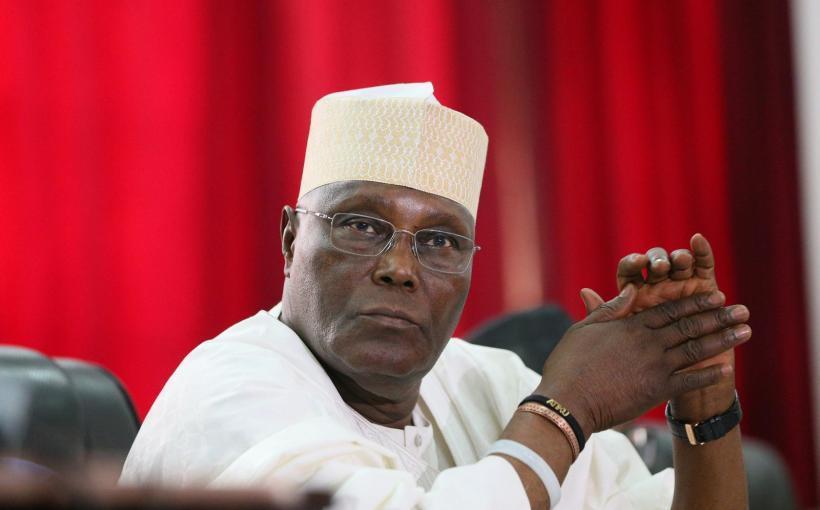ECONOMY
Recession: We need painful actions, adjustment to 2021 proposed budget — Atiku

Former Vice President Atiku Abubakar on Sunday said that Nigeria must act now, by taking necessary, and painful actions including adjustment to the proposed 2021 budget, to exit another recession the country has entered.
Abubakar in a statement he issued in Abuja, said that although COVID-19 pandemic had exacerbated an already bad situation, Nigeria could have avoided the second recession, within five years, by a disciplined and prudent management of the economy.
“Be that as it may, it serves no one’s purposes to quarrel after the fact.
“We must focus on solutions. Nigeria needs critical leadership to guide her back to the path of economic sustainability.
“We cannot afford hand wringing and navel-gazing. We must act now, by taking necessary, and perhaps painful actions.”
Abubakar said that for a start, the proposed 2021 budget presented to the National Assembly on Oct. 8, was no longer tenable, saying Nigeria neither had the resources, nor the need to implement such a luxury budget.
“The nation is broke, but not broken. However, if we continue to spend lavishly, even when we do not earn commensurately, we would go from being a broke nation, to being a broken nation.
“As a matter of importance and urgency, every non essential line item in the proposed 2021 budget must be expunged.
“For the avoidance of doubt, this ought to include estacodes, non emergency travel, feeding, welfare packages, overseas training, new vehicle purchases, office upgrades, non salary allowances, etc.
“Until our economic prospects improve, Nigeria ought to exclusively focus on making budgetary proposals for essential items, which include reasonable wages and salaries, infrastructural projects, and social services (citizenry’s health, and other human development investments).”
Abubakar also stressed the need to stimulate the economy, by investing in human development, and increasing the purchasing power of the most vulnerable of the population.
He said that only a well developed populace could generate enough economic activity for the nation to exit the recession.
“We must invest in those most likely to be impacted by the effects of the recession, the poorest of the poor.
“As well as stimulating the economy, this also ensures that they do not slip further into extreme poverty.
“For example, a stimulus package, in the form of monthly cash transfers of ₦5,000 to be made to every bank account holder, verified by a Bank Verification Number, whose combined total deposit in the year 2019 was lower than the annual minimum wage.”
He proposed that it could be achieved through a luxury tax on goods and services that were exclusively accessible only to the super-wealthy.
“A tax on the ultra wealthy to protect the extremely poor.
“A practical approach to this is to place a 15 per cent tax, on all business and first class tickets sold to and from Nigeria, on all luxury car imports and sales, on all private jets imports and service charges.
“Fifteen per cent tax on all jewellery imports and sales, on all designer products imported, produced or sold in Nigeria, and on all other luxury goods either manufactured, or imported into Nigeria, with the exception of goods made for export.”
He said that the proceeds of the tax should be exclusively dedicated to a Poverty Eradication Fund, which must be managed in the same manner as the Tertiary Education Trust Fund, or the Ecological Fund.
“I further propose that a one per cent poverty alleviation tax should be legislated by the National Assembly on the profits of every international oil company operating in Nigeria, and international airlines doing business in Nigeria, which should also go towards the proposed Poverty Eradication Fund.
“It is inhumane for us as a nation to increase the cost of goods and services that affect the poor, while keeping the cost of luxuries fairly stable.
“We must flip this, and flip it immediately.”
Abubakar also advised that Nigeria must stop borrowing for anything other than essential needs, saying borrowing to pay salaries, or to engage in white elephants was not an essential need.
He said that the action was particularly important as Nigeria needed cash at hand, because the world and the country’s economic and development partners were also focused on helping their home economies overcome the effects of COVID-19.
“We must be our own saviours.
“The more we borrow, the more we will need cash to make interest and principal payments, and the less cash we will have to make necessary investments in our economy and our people.
“If we keep borrowing, we stand the risk of defaulting, and that will make recession a child’s play, because we will lose some of our sovereignty.”
He urged the federal Government to open its mind to ideas, “without caring who the messenger is”.




 Davido's Net Worth & Lifestyle
Davido's Net Worth & Lifestyle 
